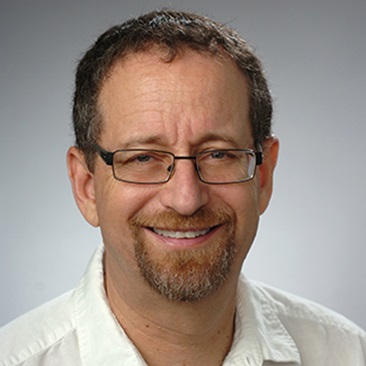New threats, familiar challenges: Maxwell responds to COVID-19
October 30, 2020
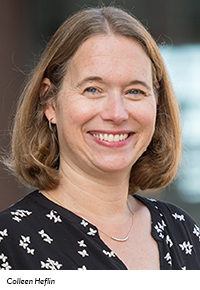 How are scholars and practitioners across policy areas—economics,
public health, education, social welfare—responding to the myriad impacts of
the coronavirus? That’s what Professor of Public Administration and
International Affairs Colleen Heflin wanted
to know, and who better to ask than Syracuse University faculty and alumni?
How are scholars and practitioners across policy areas—economics,
public health, education, social welfare—responding to the myriad impacts of
the coronavirus? That’s what Professor of Public Administration and
International Affairs Colleen Heflin wanted
to know, and who better to ask than Syracuse University faculty and alumni?
Last summer, amid the peak spread of the pandemic in the United States, a team of Syracuse University professors led by Heflin conceived of a new MAX100 course: Interdisciplinary Perspectives of COVID-19, a cross-disciplinary introductory course for undergraduate students considering a major in the social sciences.
“The COVID pandemic is a great example of a current event that is changing every aspect of society—from how families are organized to how we deliver education and the structure of work,” says Heflin. “The MAX100 course structure naturally lends itself to examining the same topic from a variety of disciplinary and topic lenses. And given that we have Maxwell alumni working across such a broad spectrum of areas, we have incorporated a ‘boots on the ground’ aspect to every topic too.”
That first-hand perspective has been essential to the success of the course. Heflin’s COVID-19 class pairs a different Syracuse University professor and Maxwell alumnus each week to examine an urgent challenge—from food insecurity, to education disruption, to health disparities, to the equitable distribution of resources, to relationships between nations.
“I like the class because it’s in the now,” says sophomore Kristen Bashen, and international relations major with a dual interest in environmental biology. “I also really like how it’s facilitated. I’ve learned so much about things they don’t show on the news. It’s rare you get someone from the CDC to talk to your class; and having alumni from SU inspires me and probably a lot of other people in the class.”
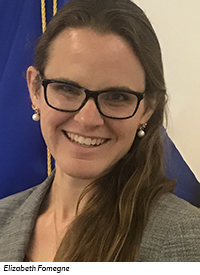 Alumna Elizabeth Fomegne ’04 B.F.A./’09 M.P.A., team policy lead
for the Maternal and Child Health Bureau of the Health Resources and Services
Administration (HRSA), sees her participation in Heflin’s class as a way not
only to pay it forward, but also to attract others to consider careers in public
health. (See “Alumni
Spotlight” for more on Fomegne’s career.)
Alumna Elizabeth Fomegne ’04 B.F.A./’09 M.P.A., team policy lead
for the Maternal and Child Health Bureau of the Health Resources and Services
Administration (HRSA), sees her participation in Heflin’s class as a way not
only to pay it forward, but also to attract others to consider careers in public
health. (See “Alumni
Spotlight” for more on Fomegne’s career.)
“I love giving back to the school, and any way I can do that, I’m grateful for,” says Fomegne, who also serves as a Maxwell Alumni Ambassador. “I also recognize that Maxwell is a pipeline for the future. I love to engage with students and chat with them, because when you’re in school, you don’t know what life looks like on the other side. I think it’s really helpful to be able to talk with somebody and hear about different opportunities.”
Of the 13 alumni presenters, seven earned their Master of Public Administration (M.P.A.) from Maxwell’s #1-ranked program (one with a dual Master of Arts in International Relations (M.A.I.R.)), and one earned an Executive Master in International Relations (E.M.I.R.) from the department. They work across all levels of government—federal, state and county—and in an array of service sectors. In addition to Fomegne, they include: Nancy Andrade ’11 M.P.A., health scientist for the Center for Disease Control and Prevention (CDC); Amy Kershaw ’94 M.P.A., commissioner, Economic Assistance and Employment, Massachusetts Department of Transitional Assistance; Xiaoxu Lin ’19 E.M.I.R., former operational lab director, Walter Reed Army Institute of Research; Farhad Peikar ’13 M.P.A./M.A.I.R., international affairs officer, World Bank Group; Mariah Senecal-Reilly ’14 M.P.A., program coordinator at the Onondaga County Health Department (Syracuse, NY); Julia Tedesco ’08 M.P.A., president and CEO at Foodlink (Rochester, NY); and Jessica Todtman ’13 M.P.A., chief strategy officer at the Nevada Department of Education.
The course structure also gives students a window into both existing and emerging scholarly research as it happens. For example, economist Emily Wiemers, associate professor of public administration and international affairs, discussed in her June 2020 working paper on the disparities in risk for severe complications from COVID-19 among middle-aged Americans. The study identified large gaps in vulnerability to COVID-19 across race, ethnicity, education and income levels. Associate Professor of Sociology Shannon Monnat, meanwhile, shared her ongoing research on geographic variances in COVID-19. In following weeks, students heard from other scholars about the mental health and financial pressures on families, and impacts on education, food insecurity, the election, and more.
The course, and its integrated approach, has struck a chord across campus, drawing undergraduate students from every class year and from across schools and majors to learn from faculty scholars across a mix of graduate and undergraduate programs.
“The Maxwell School contains national experts across a wide variety of areas,” notes Heflin, who conducts research on food and housing insecurity during the pandemic. “Many of us are working directly on COVID-related research in order to both understand the sea change that is occurring across society and to try to buffer the rise in inequality that many fear will come in its wake.”
10/30/20
Related News
School News
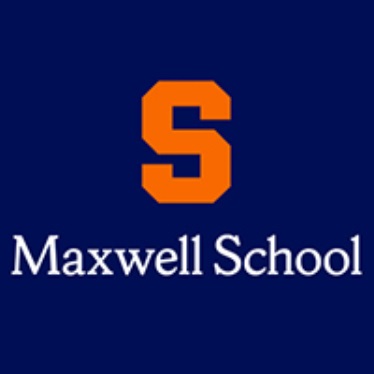
Mar 13, 2024
Commentary
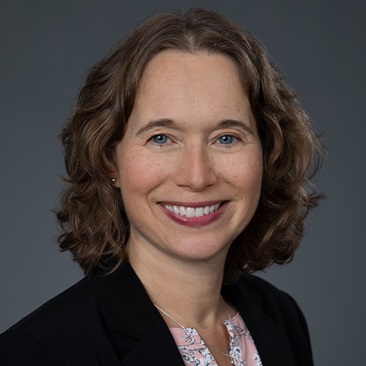
Feb 29, 2024
School News
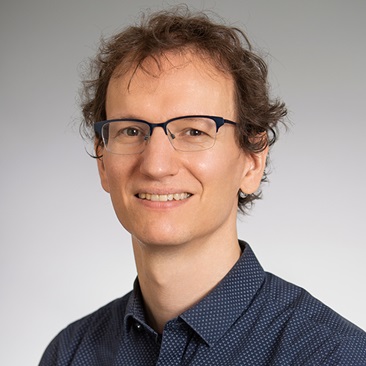
Feb 19, 2024
